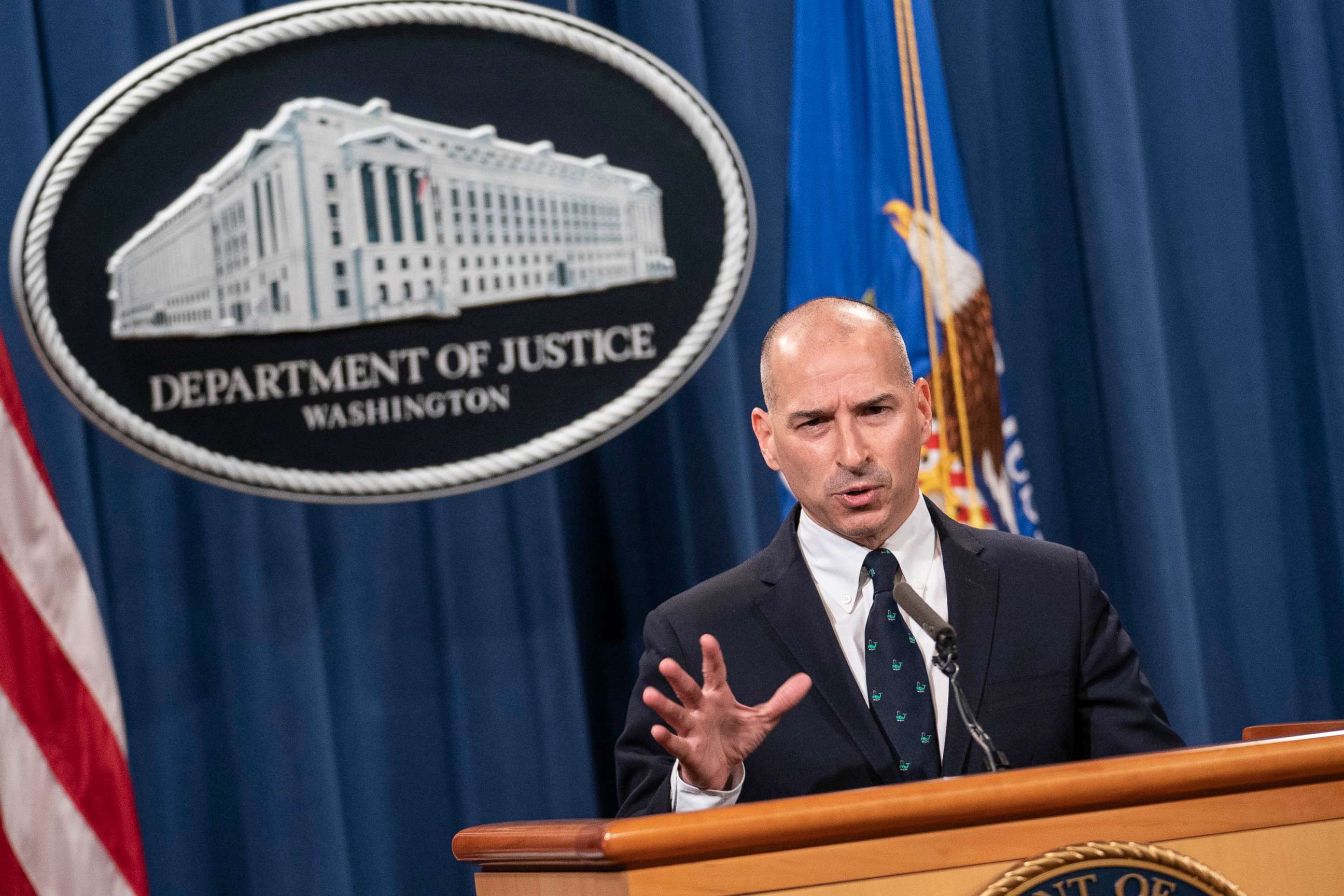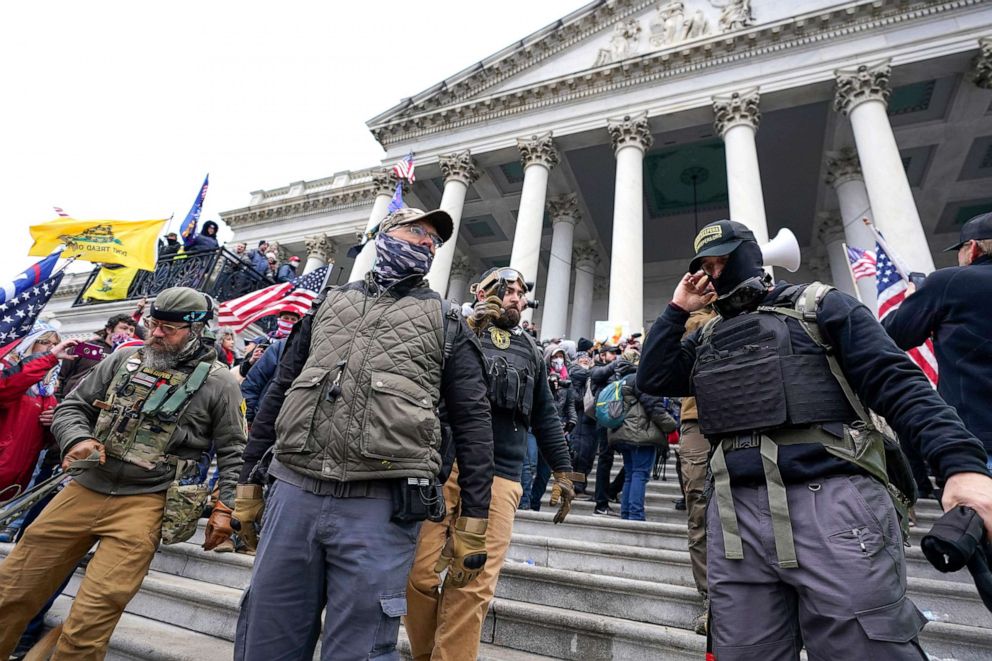DOJ, Jan. 6 committee staff clash in interview with former U.S. attorney: Sources
The DOJ feared investigators' questions could impact their ongoing prosecutions.
Attorneys with the Department of Justice recently clashed behind closed doors with staff members for the House select committee investigating the Jan. 6 Capitol attack, two sources familiar with the matter tell ABC News.
In a roughly five-hour interview last month that House investigators conducted with former Acting U.S. Attorney Michael Sherwin, attorneys from the DOJ's Office of Legislative Affairs repeatedly objected to questions that they argued could impact the DOJ's ongoing work prosecuting accused Jan. 6 rioters.
Sherwin had been tasked with leading the early stages of the DOJ's criminal investigation into the attack, and sources told ABC News that during the interview, DOJ attorneys were highly sensitive to questions posed by House investigators that were related to the early stages of the probe.
At one point, interactions between Jan. 6 staffers and DOJ attorneys grew so contentious that Sherwin stepped out of the room so the discussion could continue in private, sources said.

The episode reflects a rare instance of tensions surfacing between the committee and the Justice Department, which over the past year have quietly been working together to ensure their parallel investigations don't compromise sensitive matters involving the DOJ's criminal prosecutions.
Sherwin is not the first former DOJ official authorized by the department to testify before the Jan. 6 select committee, and other witnesses -- including former Acting Attorney General Jeffrey Rosen -- were subject to similar limitations on their testimony in front of Congress.
"The Department has a longstanding policy not to provide congressional testimony concerning prosecutorial deliberations," said a DOJ letter sent to Rosen authorizing his testimony before the Senate Judiciary Committee last year. "Discussion of pending criminal cases and possible charges also could violate court rules and potentially implicate rules of professional conduct governing extra-judicial statements."
But Jan. 6 investigators, according to sources, believed the limitations on Sherwin's testimony were overly restrictive in prohibiting him from discussing any information starting from the time the Capitol was under assault.
Spokespeople for the Justice Department and the Jan. 6 select committee declined to comment to ABC News regarding the interview, and Sherwin himself also declined to comment.
Sherwin, who served as acting U.S. attorney through the end of Donald Trump's administration and stayed on into the Biden administration, resigned from the Justice Department in April of 2021 after he sat for an interview with CBS' 60 Minutes that was not authorized by senior DOJ officials. Sherwin told 60 Minutes that evidence potentially supported charges of sedition against some of those who participated in the attack.

Soon after the 60 Minutes interview, a federal judge admonished DOJ prosecutors over Sherwin's comments, which the judge said could potentially taint the government's case against members of the Oath Keepers militia group charged in connection with the Jan. 6 attack.
The Justice Department's Office of Professional Responsibility launched an investigation into Sherwin over the 60 Minutes report, but it's unclear whether that probe continued after Sherwin left the department and joined a private law firm. Nearly a year after the 60 Minutes interview, in January of this year, 11 members of the Oath Keepers, including founder Stewart Rhodes, were charged by the DOJ with seditious conspiracy.
As a result of the limitations asserted by DOJ attorneys, Sherwin's answers to the Jan. 6 committee's questions last month were largely limited to discussing his concerns about failures in intelligence-sharing prior to the Jan. 6 attack, sources said. Sherwin was critical of how FBI officials have defended their intelligence gathering in the period leading up to Jan. 6, noting that some individuals on social media had publicly expressed a desire to disrupt Congress' certification of the 2020 vote, per sources.
Jan. 6 committee staffers also questioned Sherwin about whether any officials in the Trump White House or elsewhere had sought to influence any of the early decisions made by prosecutors in their cases against rioters who stormed the Capitol. Sherwin denied that any such overtures took place, sources said.
By the time Sherwin left his post as acting U.S. attorney in March of 2021, the office had brought charges against more than 300 individuals in connection with the assault on the Capitol.
According to the latest ABC News tally, that number has since grown to nearly 800 people, including members of groups like the Oath Keepers and Proud Boys who are accused of coordinating among each other in advance of the attack.
ABC News' Benjamin Siegel contributed to this report.




